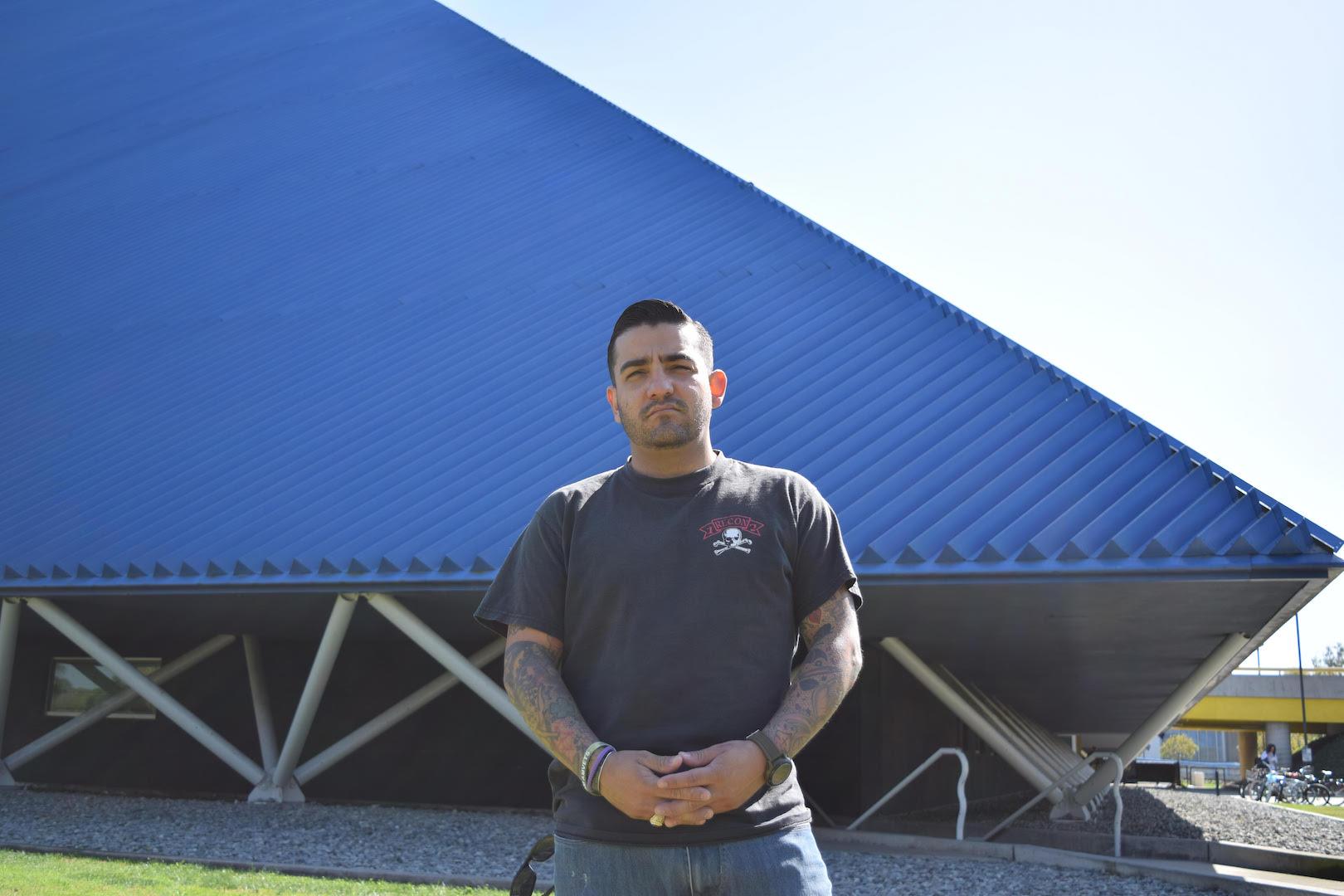For Gustavo Orozco, the camaraderie he experienced during his time in the military has defined his attitude. The soon-to-be 31-year-old Cal State Long Beach student, who was recently appointed by Long Beach Mayor Robert Garcia to the Veterans Affairs Commission, is looking to spend to his two-year term improving the lives of Long Beach veterans through strengthening their sense of community. As president of VetNet, an on-campus veterans student organization, Orozco has worked to recreate the feeling of camaraderie among university veterans. While aiming to increase fraternity, Orozco also hopes to change the perception of military veterans.
Q: Describe your time in the military and what drove you to enlist.
A: So, I joined about a year after high school. I joined the army in 2005, one, because I didn’t know what I wanted to do after high school, and two, because I remember seeing all the 9/11 stuff. I was a sophomore in high school [when it happened] and it kind of hit home. So, I joined and was a tanker. I was trained to drive, shoot, all that stuff, for the M1A1 Abrams tank. I was in Germany for most of my time. I went to Iraq in 2007 to 2008 for a 15-month deployment. For most of that, I was in Baghdad and then we spent some time in Mosul. And then I got out of active duty in 2010 and I came back into the army in 2011 as an instructor. So, I’m an army drill sergeant in the reserves. I started going to school and have been doing the reserve thing since then.
Q: How did you come to get involved with city government and what drove you to apply to the Veterans Affairs Commission?
A: When I was in high school, I was in the Long Beach Veterans parade because I was in high school Reserve Officers Training Corps. So, when I came back from the military I started getting involved with the veterans parade. I’m actually the treasurer for the Veterans Day Parade Committee. I’ve been involved in a couple other veterans groups in Long Beach and so I heard that there was a position open in the commission. So, I applied for it and luckily I had some traction with being involved in all these veterans groups and I met the mayor. The mayor actually called me out at the State of the City address this past January. So, with all that traction, I applied and sure enough the mayor appointed me.
Q: What is the objective of the Veterans Affairs Commission and what are some personal goals you have for your term?
A: So, the commission just got started. The first part of the mission for the commission is to do research on what is available in Long Beach for veterans. Some of my personal goals [include] more outreach, more team building and more camaraderie building, because that’s one of the biggest issues with veterans that I’ve seen. Once veterans leave the military, they don’t have that camaraderie, that support system that really helps push each other to succeed. When you’re in the military, you live, work and play with a small group of people and they’re pretty much your support system. When you get out and move either back home or to a university, you don’t have that support system. So, being a part of a group is really beneficial. Veterans kind of get generalized in this stigma of, like, “every veteran that comes back has PTSD.” But that’s not the case. There’s such a small percentage of veterans who are in a combat zone and even a smaller percentage get PTSD. But, overall, everybody kind of gets that label. So, I think one of the obstacles we face as veterans is changing that dynamic, changing the way everybody looks at us. Because at the end of the day, we’re people too.
Q: Figures released in 2015 by the Los Angeles Homeless Services Authority showed a rise in homelessness, with veterans contributing to the population. Even though Long Beach’s rate of veteran homelessness decreased 58 percent that year, do you plan on working with the Homeless Services Advisory Committee to continue lowering that number?
A: We just had the homeless count not to long ago. I know that we’re all waiting for the numbers to come out, but as soon as we get numbers we’ll have an idea of how many homeless veterans there are in Long Beach. That’s something we spoke about at last commission meeting, that we need to find the resources for these homeless veterans and then see how us, as a small governing body, can either make recommendations to the mayor or the city council or, us ourselves, hit the street and start handing out backpacks with resources such as Subway cards and extra socks, stuff like that.
Q: What are your plans for after graduation?
A: I’m looking at urban planning. I definitely want to stay in Long Beach and do as much as I can for this city.




